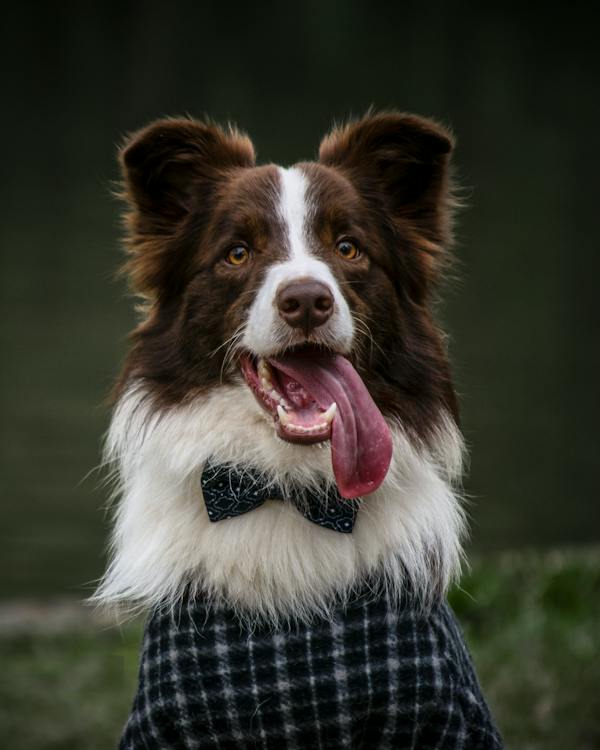Dog owners let their furry friends lick their faces all the time. But is that really hygienic? Is a dog’s mouth cleaner than a human’s mouth? Or is that just an urban myth?
While a dog‘s mouth does contain some antimicrobial compounds, it is certainly not cleaner than a human mouth overall. Dogs harbor hundreds of different bacteria species, some of which can be transmitted to people with serious consequences.
In this article, we’ll compare dog and human oral bacteria and health risks. Let’s dig into the science to find out if “dog mouth cleaner” claims hold up.
Bacteria Found in Dog Mouths
There are over 600 different bacteria species present in a typical dog’s mouth. The most common include:
- Pasteurella
- Capnocytophaga
- Leptospira
- Streptococcus
- Staphylococcus
- Salmonella
- E. coli
- Bacillus
Some of these bacteria also reside in human mouths. But dogs have a higher diversity and concentration of microbes compared to humans due to habits like licking, eating feces, and scavenging.
Dogs also harbor bacteria not typically found in humans, such as Bartonella henselae (cat scratch disease) and Yersinia enterocolitica (gastroenteritis). Let’s compare this to the human mouth.

Bacteria Found in Human Mouths
The human mouth contains hundreds of bacterial species as well, though fewer overall than dogs. The most common include:
- Streptococcus mutans
- Lactobacillus acidophilus
- Staphylococcus
- Streptococcus sanguinis
- Streptococcus mitis
- Actinomyces
You can see there is some overlap with dogs, especially in Streptococcus and Staphylococcus bacteria. But humans generally have fewer microbes present, and they are better adapted versions since it’s our natural oral environment.
Are Dog Mouth Bacteria Harmful to Humans?
Yes, dogs can transmit a range of bacteria to humans that pose illness risks, including:
Pasteurella – Causes skin infections, urinary tract infections, respiratory illness.
Capnocytophaga – Leads to blood infections, sepsis, meningitis in immunocompromised people.
Salmonella – Causes salmonellosis food poisoning, diarrhea, and vomiting.
Staphylococcus – Creates skin and soft tissue infections.
Streptococcus – Associated with strep throat, skin infections, and toxic shock syndrome.
Bacillus – Causes gastrointestinal illness and infections.
MRSA – Antibiotic-resistant staph infection. Dogs can contract from humans and spread.
So while not every dog mouth lick leads to illness, dogs do harbor and can transmit many more concerning bacteria compared to humans. Let’s analyze why the bacteria myth began.

Origins of the Cleaner Mouth Myth
The misconception arose because:
- Dogs produce antimicrobial lysozyme in their saliva. But human saliva also contains lysozyme.
- The bacteria in dogs’ mouths differs from what typically sickens them. But these bacteria can be pathogenic to humans.
- Bites are common dog injury vectors. But bacteria also spread through licking open wounds or eyes.
- Dogs lick their wounds to self-heal. However, human saliva also promotes wound healing.
- Dogs eat raw food frequently. Yet human hands also spread bacteria via cross-contamination during food prep.
In reality, both dog and human mouths house a complex mix of microbes. Neither can be deemed “cleaner” than the other from a factual standpoint.
Reducing Risk of Transmission
To minimize bacterial transmission between dogs and humans:
- Avoid direct mouth contact like kisses, especially on the lips, mouth, or eyes.
- Rinse your hands after playing with or handling dogs.
- Disinfect dog toys, bowls, and beds regularly.
- Keep dogs current on oral exams, cleanings, and dental care.
- Address gum disease, cavities, or excessive drooling which spread bacteria.
- Seek prompt medical care if you develop any infection after dog contact. Inform doctors of the exposure.
While close relationships with dogs are safe for most healthy individuals, proper precautions help reduce risk where possible.
When Are Dog Licks OK?
Casual face licks are low risk for most healthy adults and older children. Quick kisses spread fewer bacteria than prolonged contact.
However, avoid dog mouth-to-human contact if:
- You have open cuts, wounds, or medical devices on your skin.
- You are elderly, very young, pregnant, or immunocompromised.
- Your dog is exhibiting signs of oral disease.
Use your discretion based on health status and known risk factors. Seek medical guidance about dog interaction if concerned.

Frequently Asked Questions
Does the idea of dogs and humans sharing germs still leave you with questions? Here are some additional points:
Can my dog make me sick by licking me?
In most cases, healthy adults will not get sick from brief, casual dog licks thanks to human immune defenses. However, dogs can pass illness in some situations. Minimize prolonged direct mouth contact.
Do some dog breeds have cleaner mouths?
Dog mouth bacteria is not significantly different across breeds. Some individual dogs may harbor fewer microbes based on health, diet, environment and personal mouth hygiene habits.
Is dog saliva beneficial like human saliva?
Human saliva has unique protective properties when inside the human body. Dog saliva can clean canine wounds but is not adapted to protect human cells in the same way.
Should I brush my dog’s teeth?
Yes! Regular brushing reduces bacteria buildup that leads to plaque, tartar, and periodontal disease – a big source of microbes.
Can dogs transmit rabies just from licking?
The rabies virus is transmitted through bites and scratches, not simple licking. However, any strange behavior in a dog should prompt examination by a vet.
While a dog’s mouth isn’t truly cleaner than a human’s mouth, the risks remain low for healthy adults with normal immune function. Still, certain precautions can help reduce bacterial transmission even further.


